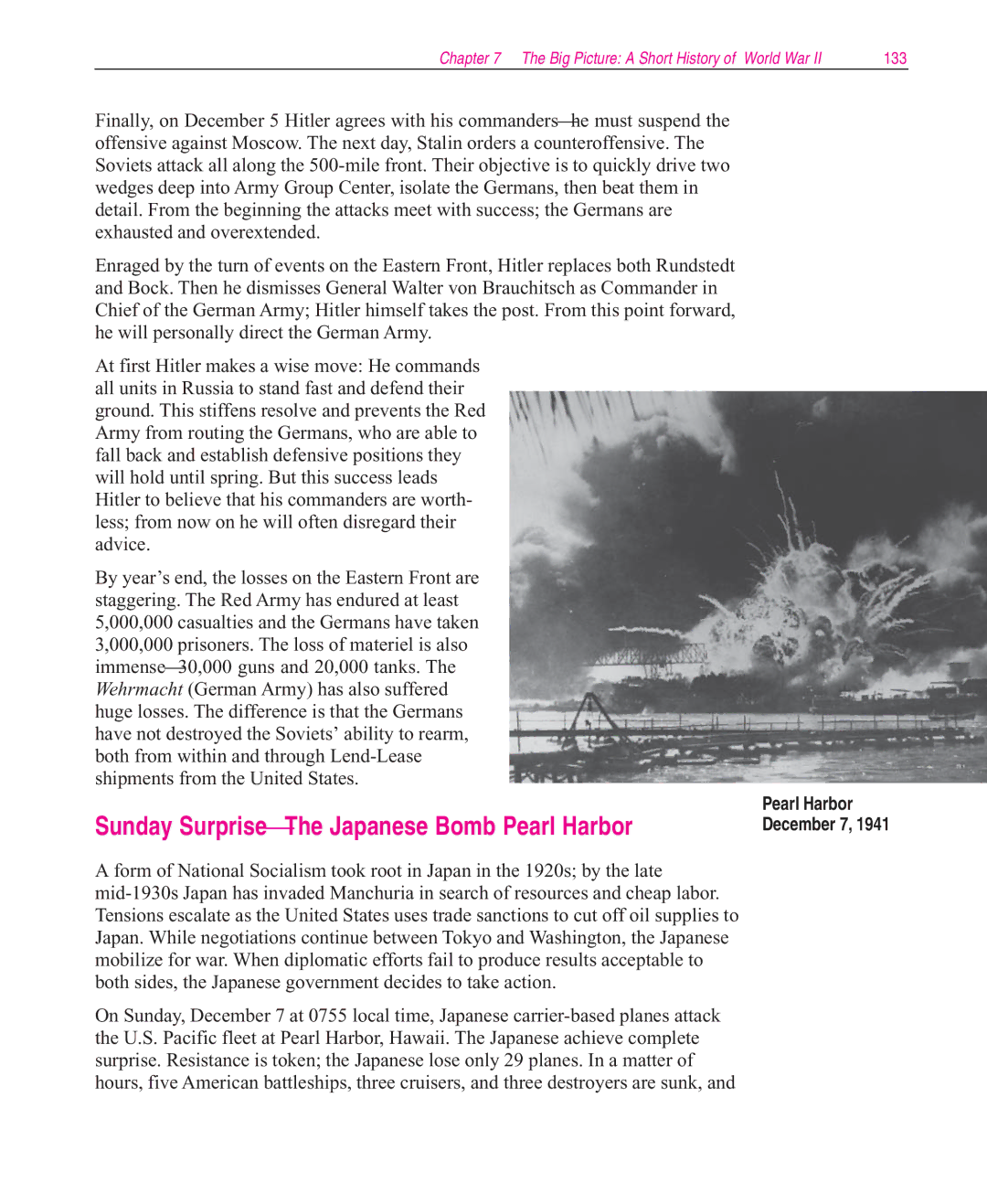
Chapter 7 The Big Picture: A Short History of World War II | 133 |
Finally, on December 5 Hitler agrees with his commanders he must suspend the offensive against Moscow. The next day, Stalin orders a counteroffensive. The Soviets attack all along the
Enraged by the turn of events on the Eastern Front, Hitler replaces both Rundstedt and Bock. Then he dismisses General Walter von Brauchitsch as Commander in Chief of the German Army; Hitler himself takes the post. From this point forward, he will personally direct the German Army.
At first Hitler makes a wise move: He commands all units in Russia to stand fast and defend their ground. This stiffens resolve and prevents the Red Army from routing the Germans, who are able to fall back and establish defensive positions they will hold until spring. But this success leads Hitler to believe that his commanders are worth- less; from now on he will often disregard their advice.
By year’s end, the losses on the Eastern Front are staggering. The Red Army has endured at least 5,000,000 casualties and the Germans have taken 3,000,000 prisoners. The loss of materiel is also immense 30,000 guns and 20,000 tanks. The Wehrmacht (German Army) has also suffered huge losses. The difference is that the Germans have not destroyed the Soviets’ ability to rearm, both from within and through
Sunday Surprise The Japanese Bomb Pearl Harbor
A form of National Socialism took root in Japan in the 1920s; by the late
On Sunday, December 7 at 0755 local time, Japanese
Pearl Harbor December 7, 1941
